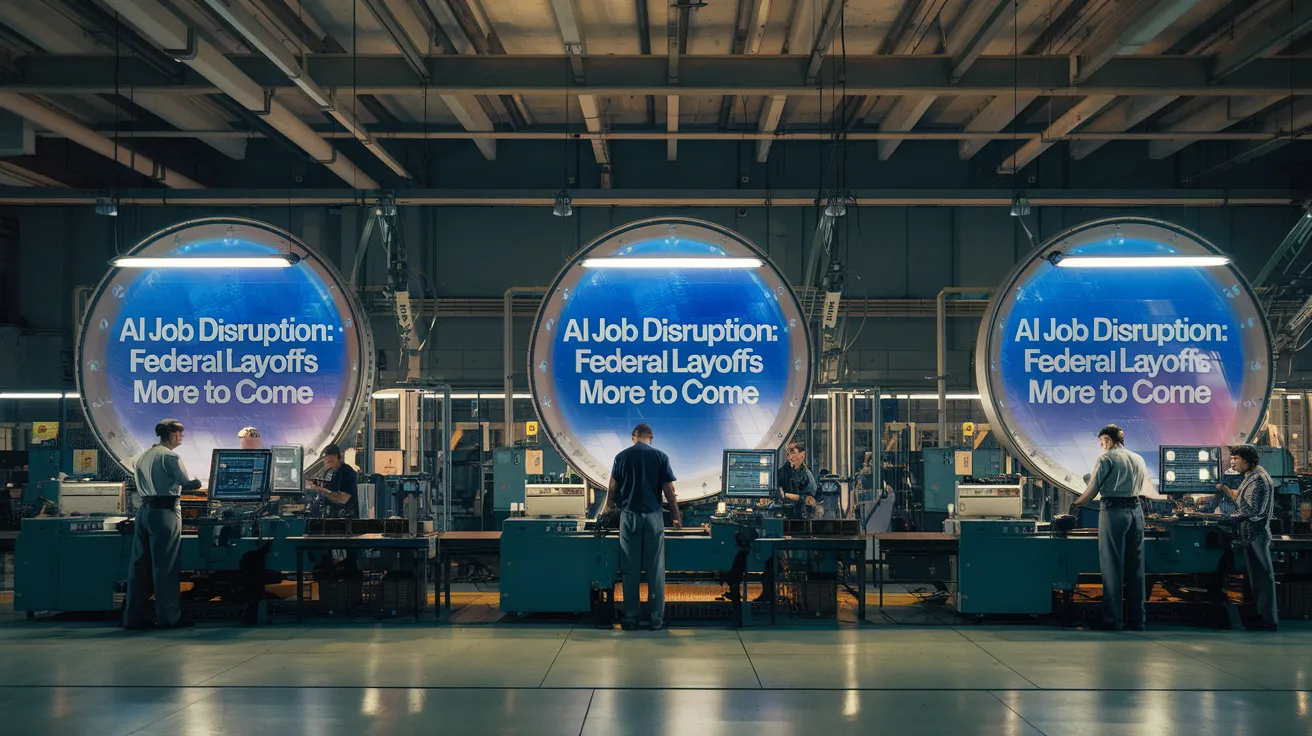AI Job Disruption: Federal Layoffs Signal More to Come

The recent announcement by the Trump administration of approximately 6,700 layoffs within the Internal Revenue Service (IRS)—accounting for about 8% of the agency’s workforce—comes at a particularly inopportune moment. Tax season is underway, and the IRS is expected to handle a significant volume of returns and refunds while simultaneously facing substantial impending changes to tax legislation.
The Fallout of Federal Job Cuts
The layoffs not only spark concerns about the immediate efficacy of IRS operations but also paint a broader picture of the changing landscape of work in the face of advancing technology. Concurrently, Congress is poised to debate significant modifications to tax laws, which will inevitably demand more from the already overburdened remaining IRS employees, who are operating in a climate of low morale.
Automation’s Encroachment on Employment
As we witness the impacts of these layoffs, it’s crucial to recognize that the technology enabling automation of various tasks already exists. Many businesses have incorporated tech solutions that utilize AI and optical character recognition to streamline accounting processes, making it apparent that analogous systems could similarly handle much of the routine work currently performed by IRS agents.
Job Displacements Across Industries
This issue is not confined to the IRS. Numerous corporations are implementing AI tools that are increasingly replacing human workers across sectors. For instance, Klarna has recently announced the laying off of 2,000 employees due to their new AI customer service system. Similarly, major financial firms such as Morgan Stanley and JP Morgan Chase are developing AI-driven systems that could displace roles traditionally filled by humans such as investment analysts and wealth managers.
AI: A Shift in Workforce Dynamics
As tech leaders assert that AI will augment human productivity, many skeptics argue that the reality is far less optimistic—visibly trending toward displacement rather than collaboration. Mark Zuckerberg’s recent statements about mid-level engineers being replaced by AI applications at Meta serve as a cautionary touchstone regarding this paradigm shift.
Preparing for the Future
With the IRS receiving an $80 billion infusion under the Inflation Reduction Act aimed at modernizing tax collection, the pace of technological change may seem slow. However, for employees in both the public and private sectors—particularly those in customer service, marketing, and accounting—the implications of this technological revolution may soon bear heavily upon job security. The recent layoffs are a mere preview of what is likely to unfold as corporations increasingly turn towards technology as a means of reducing operational costs.
Anticipating Disruption in the Workforce
Ultimately, the current wave of federal layoffs may just be the tip of the iceberg. As CEOs continue to harness technology’s capabilities, the potential for widespread job displacement looms larger. Employees across various sectors should be prepared for forthcoming shifts as technology continues to make its impact felt on the workforce.